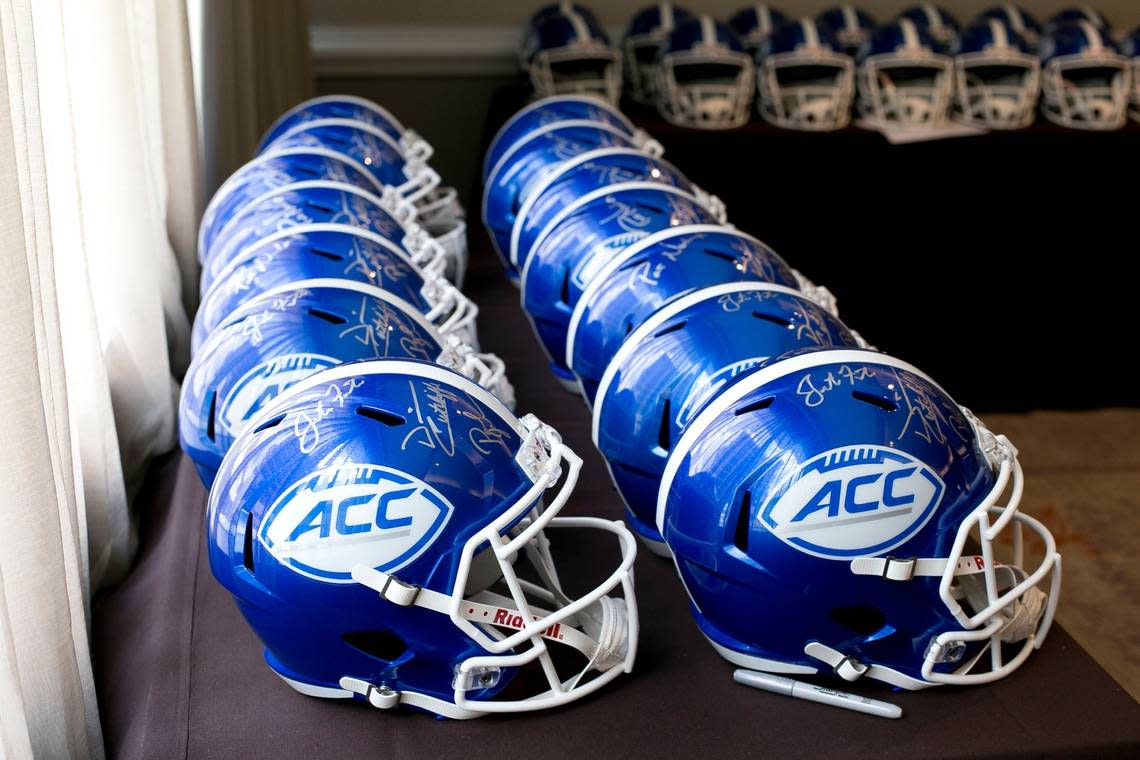At a turning point in college football, the ACC should consider taking Bill Friday’s direction
Football coaches and select players from the Atlantic Coast Conference will meet Wednesday and Thursday to talk with the media about their teams’ prospects. But the most pressing question will go unanswered: What is the prospect for the conference itself?
Uncertainty clouds big-time college football’s future now that the two megaconferences – the Southeastern Conference (SEC) and the Big Ten – have lured away the key schools of less wealthy conferences. Oklahoma and Texas will depart the Big 12 for the SEC and the Midwest-based Big Ten announced that it is expanding to the West Coast by taking in UCLA and the University of Southern California from the Pacific-12. The consolidation is about what the keepers of major college football can never have enough of – money. But it’s also about impoverishment, both monetary and moral. The schools left out will lose football revenue even after they often short-changed their academic missions to compete in college football’s arms race.
Former UNC System President Bill Friday, long a Cassandra about the dangers of a relentless pursuit of money in college revenue sports, died in 2012. Yet his prescient warning will hover over the ACC Football Kickoff in Charlotte.
If Friday were here, he might tell the ACC schools, “I told you so.” But I like to think that the co-founder of the Knight Commission on Intercollegiate Athletics would instead just repeat what he said all along: It’s not too late to turn back to what you were supposed to be before money warped your priorities.
The ACC is a top league for basketball, but the leaders of the conference and most of its schools were drawn by the lure of TV money from football. The ACC expanded to include more football powers and gain access to more media markets. It created the ACC/ESPN TV network in 2016.
The 14-member ACC tried to keep up, but couldn’t. The SEC and Big Ten were rich and now are getting richer. The ACC, meanwhile, grew overextended, distanced from its regional roots and unable to pay its members at the levels paid by the SEC and Big Ten. The ACC’s drift was well described this week by The News & Observer’s Andrew Carter.
Now, the jig is up. Patrick Crakes, a sports media expert, told The News & Observer’s ACC Now podcast this week, “We’re going to end up with 3.5 conferences in the end. We know who two of them are. The question is: What will happen with everything else?”
Now the expanded ACC may break up. ACC schools with the most national prominence in football may be absorbed into the megaconferences. Proud but lower-profile ACC football programs may suffer a loss of exposure and revenue. Some may be left with stadiums with too many empty seats and coaches they can no longer afford.
In a 2011 interview with the Durham-based Indy Week the year before he died at 92, Friday provided a final warning that echoes loudly now: “We are trying to superimpose an entertainment industry on top of an academic structure, and it won’t work. It never has worked. What you are seeing on the college scene right now is the consequence of not controlling that very enterprise.”
The ACC will try to remake itself to stay in the big-time football game. But its best course may be to go back to its roots. Focus on basketball. Stress academic quality. Quit the arms race of ever-bigger facilities and ever-higher paid coaches.
Maybe the top ACC football schools will leave the conference, but what may come back is football in proper proportion. Few ACC schools will ever be good enough to beat Alabama or Ohio State for a national title and it’s only going to get harder. The ACC should invest in its strengths, not its weaknesses.
“The time has come for the conference to decide which way this conference will be identified in the future,” Friday said in that Indy Week interview a decade ago.
“I would hope, fervently hope, that our conference would lead the way,” he said. “This is a group of very fine institutions. They know what to do, they know how to do it, and it’s just a matter of taking that first step.”
Associate opinion editor Ned Barnett can be reached at 919-829-4512 or nbarnett@ newsobserver.com


